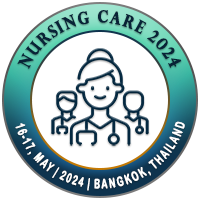
Mrs. Ellen Daiane Biavatti de Oliveira Algeri
Federal University of Rio Grande, BrazilTitle: Authentic leadership in nurses’ professional practice
Abstract
This Integrative Review aimed to identify the main constructs adopted about authentic leadership and its relevance to the professional practice of nurses. A literature search was carried out, from 2015 to 2020, in the following databases: LILACS, SciELO and PubMed. 31 studies were selected for analysis. Of the 31 studies, the countries that published the most were the United States, with 8 studies (25.8%), Canada with 7 (22.6%) and Brazil with 5 (16.1%). The quantitative approach predominated (77.41%), followed by the qualitative approach (16.1%) and the mixed approach (6.5%). It was observed that the Authentic Leadership Questionnaire (ALQ) was used in 75% of the quantitative approach studies and in 50% of the mixed studies, as a data collection instrument. Of the 31 articles, 1 study had level 4 of evidence; 3 studies, level 5 of evidence; and 27 studies, level 6: that is, 96.8% had a weak level of evidence from the analysis, three categories emerged for discussion: a) Engagement/Satisfaction at work and organizational commitment. This category brings notes about the importance of authentic leadership for the engagement of professionals at work and organizational commitment, to psychological capital, moral and ethical issues, emotional intelligence, relational integrity, and relational social capital. b) Healthy work environment. This category fundamentally anchors its discussions on work and behavioral constructs, such as a healthy work environment and authentic behavior. c) Intention to leave the job and mental exhaustion. The constructs that supported the discussions present in this category are linked to occupational stress: mental exhaustion and burnout. At the end of the analysis of the results of the studies, it can be concluded that authentic leadership contributes positively to the management and practice of nursing care, providing healthier work environments, structural empowerment, greater engagement at work and organizational commitment, in addition tocontributing to reduce absenteeism and mental exhaustion rates.
Descriptors: Leadership; Professional Exercise; Nurse; Health Management; Professional ethics.
Biography
Doctoral student in Nursing at the Federal University of Rio Grande (FURG). Master in health management and Innovation from the Federal University of Rio Grande do Norte (UFRN). Graduated in Nursing with emphasis in Public Health from the State University of Santa Catarina (UDESC). Specialized in Higher Education Teaching from the Faculty of Biomedical Sciences of Cacoal (FACIMED) and Urgency and Emergency in Nursing from the Cândido Mendes University (UCAM). She has worked as coordinator of Epidemiological Surveillance, of the Tropical Diseases Program, of the ESF, Red Room and Semi-intensive. He worked as a professor of the Nursing and Medicine course at the Faculty of Biomedical Sciences of Cacoal (FACIMED). He is currently head of the Health Technological Innovation Management Unit (UGITS) and president of the Permanent Technical Committee of the Health Technology Assessment Center (CTP-NATS) at the University Hospital of the Federal University of Grande Dourados, Ebserh branch (HU- UFGD/Ebserh)

